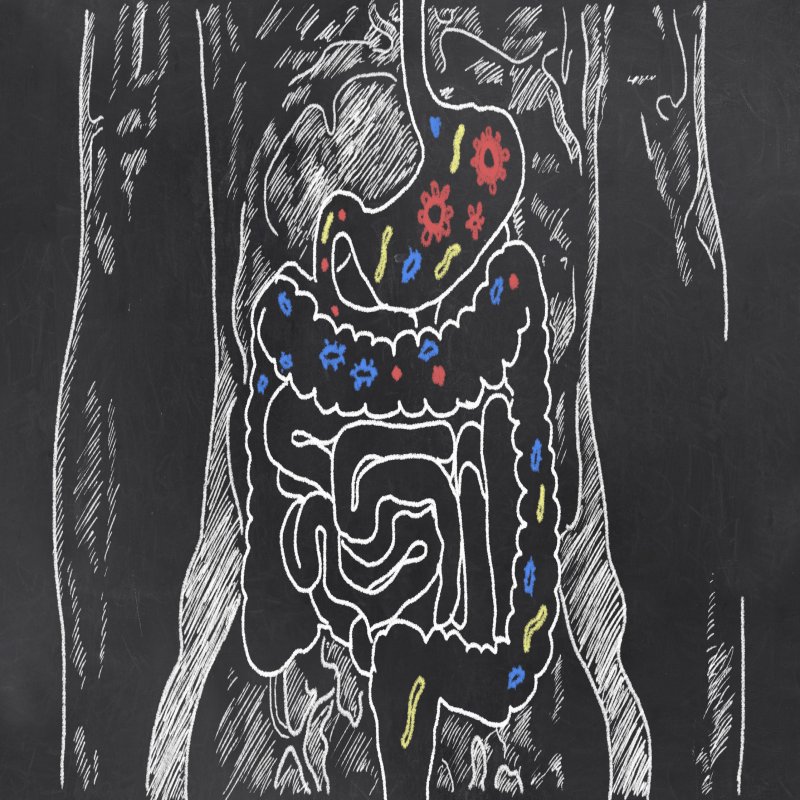
Our understanding of the gut and its influence on overall health continues to evolve. Leaky gut has emerged as a topic of interest, particularly regarding its potential connection to autoimmune diseases. In this blog, we will embark on a journey to explore the complex relationship between leaky gut and autoimmune conditions. By delving into the scientific research, we aim to shed light on this intriguing connection in a way that is both engaging and easy to understand.
Unveiling Leaky Gut
Leaky gut, or increased intestinal permeability, refers to a condition where the lining of the intestine becomes more permeable than usual. This altered permeability allows substances such as bacteria, toxins, and undigested food particles to leak into the bloodstream. In a healthy gut, the intestinal barrier acts as a gatekeeper, selectively allowing beneficial nutrients while preventing the entry of harmful substances.

Understanding Autoimmune Diseases
Autoimmune diseases occur when the immune system mistakenly identifies the body's own tissues as foreign and launches an immune response against them. Examples of autoimmune diseases include rheumatoid arthritis, lupus, celiac disease, and multiple sclerosis. The underlying causes of autoimmune diseases are complex and multifactorial, and emerging research suggests that leaky gut may contribute to their development.
Did You Know?
Leaky gut, characterized by increased intestinal permeability, has been implicated as a potential trigger for autoimmune diseases, where the immune system attacks the body's own tissues.
Exploring the Leaky Gut-Autoimmune Connection
Scientific evidence suggests that the increased intestinal permeability observed in leaky gut can trigger an immune response, leading to chronic inflammation. This chronic inflammation can contribute to the development of autoimmune diseases by initiating and perpetuating an immune attack against the body's own tissues. However, it's important to note that leaky gut is not the sole cause of autoimmune diseases and that additional factors, such as genetic predisposition, environmental triggers, and dysregulation of the immune system, also play significant roles.
The Role of Inflammation
Inflammation serves as a crucial component of the gut-immune axis and plays a role in both leaky gut and autoimmune diseases. The chronic inflammation resulting from a leaky gut can activate immune cells, promote the production of autoantibodies, and contribute to the breakdown of self-tolerance, leading to autoimmune responses. Reducing inflammation and supporting a healthy gut barrier may help modulate the risk of developing or exacerbating autoimmune conditions.
Supporting Gut Health
Maintaining a healthy gut is essential for overall well-being and may have implications for autoimmune diseases. Here are some tips to support gut health:
- Adopt a balanced diet rich in fiber, whole foods, and anti-inflammatory nutrients.
- Minimize the consumption of processed foods, added sugars, and artificial additives.
- Manage stress through relaxation techniques, exercise, and adequate sleep.
- Consider probiotics and prebiotics to promote a healthy gut microbiota.
Consult with a healthcare professional for personalized guidance, especially if experiencing gastrointestinal symptoms or autoimmune concerns.

Conclusion
The connection between leaky gut and autoimmune diseases is a captivating area of research that sheds light on the intricate relationship between our gut and immune system. While further studies are needed to fully understand the mechanisms and implications, adopting a holistic approach to support gut health may have potential benefits in mitigating autoimmune risks. By nurturing a balanced gut environment, we can promote overall well-being and potentially contribute to a healthier immune system.
Frequently Asked Questions (FAQs)
1. Can leaky gut cause autoimmune diseases?
Ans: While leaky gut has been implicated as a potential trigger for autoimmune diseases, it is not the sole cause. The development of autoimmune diseases involves a complex interplay of genetic, environmental, and immunological factors.
2. How is leaky gut diagnosed?
Ans: Leaky gut is not yet widely recognized as a medical diagnosis. However, certain tests, such as the lactulose-mannitol test or measurement of zonulin levels, can provide insights into intestinal permeability.
3. Are all autoimmune diseases linked to leaky gut?
Ans: The relationship between leaky gut and autoimmune diseases is still an active area of research. While some autoimmune diseases may show an association with leaky gut, the mechanisms underlying each autoimmune condition can vary.
4. Can leaky gut be reversed?
Ans: Addressing leaky gut involves identifying and addressing underlying factors such as inflammation, dietary choices, and gut dysbiosis. With proper interventions and lifestyle modifications, it may be possible to improve gut barrier function.
5. How can I support gut health?
Ans: Maintaining a healthy gut involves adopting a balanced diet, managing stress, getting regular exercise, and potentially incorporating probiotics and prebiotics. Consulting with a healthcare professional can provide personalized guidance.


.png)


